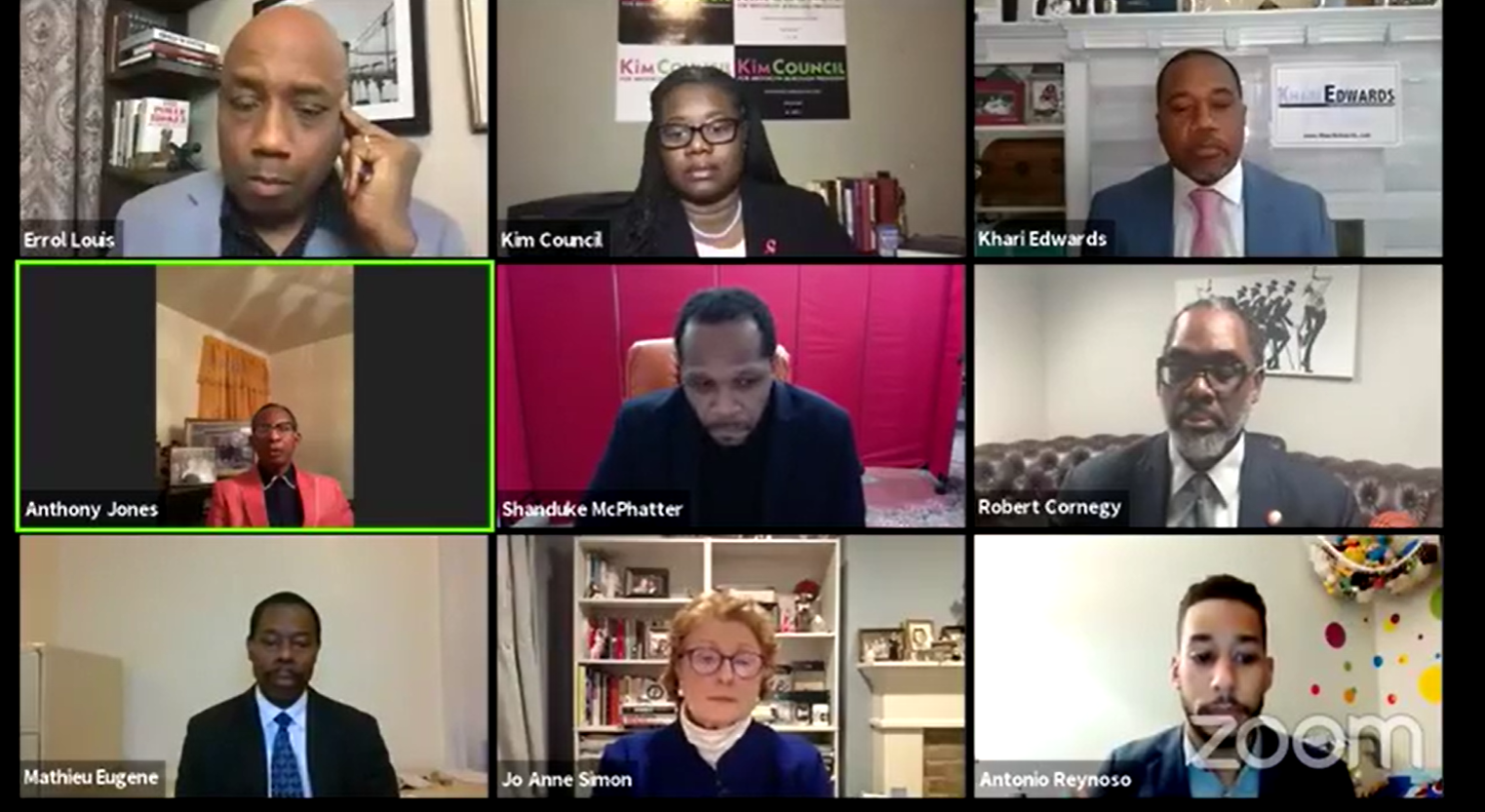Borough president candidates take center stage at Democratic Party-sponsored debate

The online debate between candidates for the Democratic nomination for borough president sponsored by the Kings County Democratic Committee on Sunday night revealed some very real differences on some of the issues as well as near-unanimity on others.
Also, some of the “minor” candidates proved to be some of the most vocal.
TV journalist and former politician Errol Lewis served as the moderator, while Brooklyn Democratic Chair Rodneyse Bichotte Hermalyn introduced the proceedings. The borough president debate was followed by debates between candidates for city comptroller and for mayor.

Brooklyn Boro
View MoreNew York City’s most populous borough, Brooklyn, is home to nearly 2.6 million residents. If Brooklyn were an independent city it would be the fourth largest city in the United States. While Brooklyn has become the epitome of ‘cool and hip’ in recent years, for those that were born here, raised families here and improved communities over the years, Brooklyn has never been ‘uncool’.